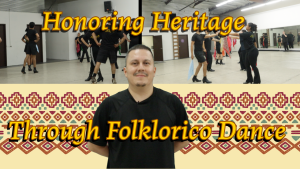Athletes want reparation from EA
September 9, 2009
If you have ever played an Electronic Arts, Inc. College Football video game, “Now playing quarterback for the Hornets, QB No. 9,” should sound familiar.
This is the way the game developer names its players, for those who have not played the game.
Due to NCAA sanctions, college players are not allowed to be compensated for the use of their names and likenesses. The developer has to get creative – well, as creative as “QB No. 9” can be.
However, former University of Nebraska quarterback Sam Keller, also known as “QB No. 9,” sees it otherwise.
Keller, who was on Nebraska’s football team in 2007, has brought a class action lawsuit against EA Sports, Inc. and the NCAA for using the virtual likeness and name of he and other NCAA athletes in the video games to earn a profit. He is filing on behalf of NCAA football and basketball players.
The games also have head coaches who are portrayed in the game, Hornets’ head coach Marshall Sperbeck would be, “Sacramento State Coach” in the game. Sperbeck said he does not mind, provided the portrayal of him is in good taste.
“As long as it is not projected in a bad way, or used in an abusive manner, I do not think I would have a problem with that,” he said. “There are a lot of (professional) athletes who are being compensated for it, so there is probably argumentative discussion that can go back and forth as far as, ‘Do college athletes deserve compensation for their performance and for their ability to be used in a video game?'”
Unlike the head coach, the players tend to say they feel otherwise.
David Coleman, a sophomore Hornet linebacker from Palmdale, Calif., said he would like to see some kind of recognition for his performance.
“I feel like we should be credited for playing. They are playing with us but we are not getting any credit for it. Maybe we should be profiting off of that, too,” Coleman said.
Junior Hornet wide receiver Ron Richardson from Pomona, Calif., had a similar response.
“Even if we do not get credit, we could at least get recognized physically,” Richardson said. “If they would put my name in the game, that would be just as good (as compensation), especially at this level because you are not supposed to get paid for anything.”
The suit states some of the issues have to do with the exact height, weight, handedness and discernible physical features of the players. The best player in college football, Tim Tebow, is 6 feet 3 inches, 245 pounds, throws left-handed and wears No. 15, according to the official Florida Gators’ athletic website. Those statistics are exactly the same in the video game. The same can be said for many of the Sacramento State players in the game.
According to the official court document, “NCAA Bylaw 12.5 specifically prohibits the commercial licensing of an NCAA athlete’s ‘name, picture or likeness.”
The suit also makes the connection between players in the NCAA games and players in the Madden NFL games. It specifically points out Miami Dolphins’ left tackle Jake Long, the first overall pick in the 2008 NFL Draft, as having the same attributes from NCAA 2008 and Madden ’09. The virtual Long even looks the same in both versions of the game.
The court document also states “In addition to physical features, Electronic Arts, Inc. even matches players’ idiosyncratic equipment such as wristbands, headbands, facemasks and visors.”
The video games in question are the NCAA Football and NCAA March Madness franchises.
“EA, the NCAA and Collegiate Licensing Company have reviewed the complaint, and do not believe that the claims have merit. EA, the NCAA and CLC regularly conduct reviews of EA’s NCAA-branded games, and we do not believe that any violations of student-athlete rights or NCAA bylaws have occurred,” senior publicist for EA Sports, Julie Michel said.
A May statement released by NCAA spokesman Bob Williams echoed EA’s position on the issue
“Our agreement with EA Sports clearly prohibits the use of names and pictures of current student-athletes in their electronic games,” Williams said. “We are confident that no such use has occurred.”
According to an Aug. 9 article in the Orlando Sentinel, the case is in a holding pattern. There is no hearing or court date currently set.
Dustin Nosler can be reached at [email protected]






















































































































